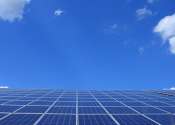Empty office spaces can be converted to residential buildings—but it won't be affordable
Since the COVID-19 pandemic began, more companies have offered remote work options for their employees, or have even switched to working entirely remotely—leaving empty office buildings a new fixture in many cities. In ...
Jul 14, 2023
0
2









